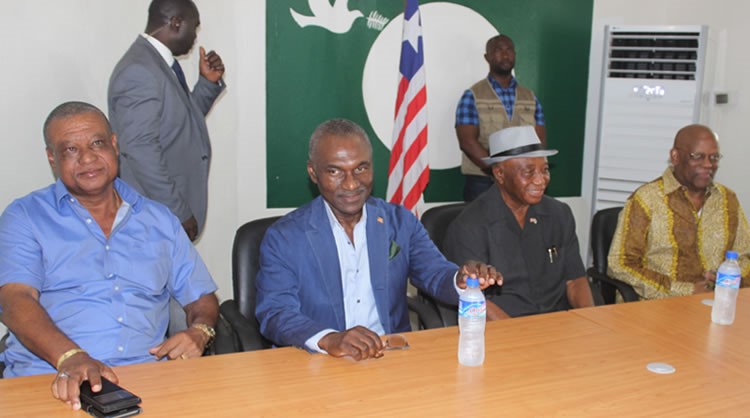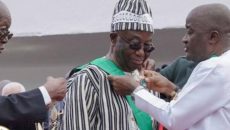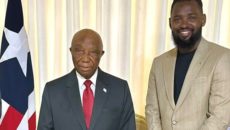It is about 2:30 p.m. and my social media pages are being flooded with images of four men together, as words such as ‘change’ and ‘hope’ are being branded about. As I begin to follow some of the comments being posted by the growing numbers of ‘Liberian Facebook’ politicians, a grinding question persists: are these four men actually agents of change in Liberia?
The four men in the images were Benoni Urey of the All Liberian Party, Alexander Cummings of the Alternative National Congress, Joseph Boakai of the Unity Party, and Charles Brumskine of the Liberty Party.
They had come together to protest the validity of the October 10 elections, labeling it as fraudulent, marred by irregularities, and poorly managed. However, when I looked at the four men, I referred back to that grinding question: are these four men actually agents of change in Liberia?
Urey has served in previous Liberian governments in junior and senior managerial roles from as far back as the 1980s. His reign as head of the Liberian Maritime Authority remains questionable with continued allegations of corruption and involvement with the military activities of President Charles Taylor. Some accused him, an Americo-Liberian elite, of promoting tribal elitism.
Although Urey can be credited with building the telecommunications giant Lonestar Cell MTN, which has contributed significantly to the economy of Liberia for many years, his past involvement in government and politics does not speak of a man capable of changing the culture of corruption, elitism, nepotism, and authoritarianism.
Brumskine, on the other hand, does not have the length of governmental service that Urey has but he was a crony of Taylor, and as recent evidence suggests, he has been a divisive figure in the past. His two years as pro temp of the Liberian Senate and a letter which surfaced recently regarding allegations of divisive comments about Liberian Muslims does not give me any confidence that he could be an agent of positive change for Liberia.
Unlike Urey, Brumskine cannot point to any significant contribution to the Liberian economy and his poor showing in the October 10 elections, however fraudulent or poorly managed it was, is an indictment by the Liberian people on the character and suitability of Brumskine as an agent of change.
Vice President Boakai has the longest public office career of any of the four men in the pictures. He has spent too many years serving the Liberian people. His first recorded stint began in 1973 at the Liberia Produce Marketing Corporation. He also served as minister of agriculture, managing director of the Liberia Petroleum Refining Company, and now as vice president of Liberia. At age 72, if we believe the phrase “you can’t teach an old dog new tricks,†he is probably so far in the past that he may not be the agent of change that Liberians seek.
Before moving on to Cummings, it is worth noting that although my comments so far might suggest that I am leaning towards the Coalition for Democratic Change as agents of change, the truth is far from it. The evidence does not support that claim; therefore, I cannot make it.
How can recycling politicians like Alex Tyler, a former stalwart of the Unity Party, who is being investigated for corruption, Gbehzohngar Findley a supporter of President Ellen Johnson Sirleaf and former pro temp and, Togar Mcintosh, a former labor and foreign minister in this government, offer change? How can a senator who has not drafted or sponsored a bill in his time at the National Legislature, the home of change, be an agent of change?
Cummings is the only one of the four men who could be an agent of change, as his time with Coca-Cola has shown. He oversaw years of growth across their Africa operations. He has over 20 years of international business experience and speaks the capitalist language that our partners speak. However, the Liberian people do not think he is that agent of change that they are thirsting for.
For me, these four men together, protesting against alleged fraud, irregularities and mismanagement of the October 10 elections, which the National Elections Commission sought to sweep under the carpet, suggests that they could just be agents of change.
Not change in terms of the corrupt, nepotistic, and impunity governance culture ingrained in our Liberian DNA, but agents of change in terms of a country where we respect the law and use it as our only medium for seeking redress.



